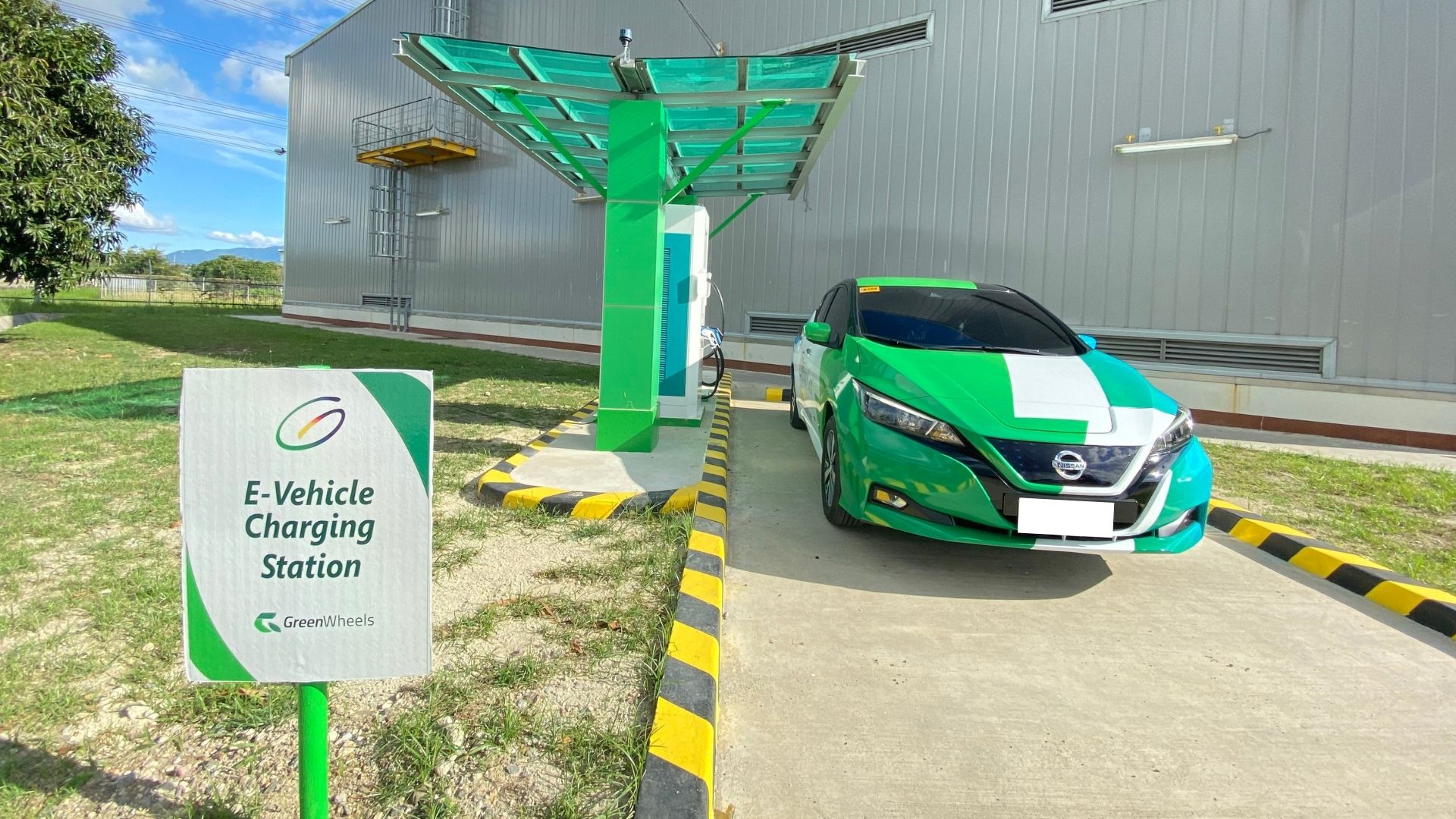First Gen pilot-tests EV project
- March 24, 2022
- 0

Lopez-led First Gen Corporation has launched its own electric vehicle (EV) pilot project in its Clean Energy Complex in Batangas City to help the company meet its carbon emission reduction goals.
Dubbed as the “GreenWheels Project”, First Gen developed a fast EV charging station powered by solar energy which could accommodate multiple EVs that can provide the car’s battery an 80% charge within 40 minutes.
“By utilizing a solar-powered charging station, even the power used to charge the EVs becomes clean. This further optimizes and enhances the role of EVs in cutting down CO2 emissions and mitigating climate change,” First Gen President Francis Giles Puno said in a statement.
First Gen acquired as its test vehicle a unit of Nissan LEAF, one of the first passenger EVs in the domestic market. The vehicle is used in and around the said complex, which houses the company’s Avion, San Gabriel, San Lorenzo, and Sta. Rita gas plants.
According to Nissan Philippines’ website, the Nissan LEAF has a 311-kilometer range in one full charge. Based on calculations, the vehicle can avoid three tons of CO2 emissions a year versus a traditional vehicle.
A 40-kilowatt-hour vehicle costs around Php 2.79 million.
First Gen’s GreenWheels Project is in line with Nissan Philippines’ Blue Switch Initiative, which aims to promote the use of EV technologies to address social concerns.
“The Blue Switch initiative allows Nissan to establish partnerships with various stakeholders, so we can work together to power mobility and beyond for a cleaner, safer, and more inclusive world,” Nissan Philippines President and Managing Director Atsushi Najima said.
“We welcome First Gen as they take their first steps to achieving carbon neutrality with their GreenWheels Project and we look forward to a fruitful partnership with them under the Blue Switch program,” he added.
Should the pilot project prove viable in reducing emissions, Puno said that First Gen will be replicating it in its other sites.
“We are pilot-testing the GreenWheels Project to understand its potential in reducing our carbon footprint and evaluate the feasibility of developing it,” he said.
The Department of Trade and Industry, meanwhile, has proposed a zero-tariff scheme on EV imports. This comes as the proposed EV law has passed both the Senate and the House of Representatives.